Viking gods and goddesses
Meet Thor, Odin, Freya and more incredible beings from Norse mythology…
Want to know a cool fact about the Vikings? The Scandinavian sea warriors worshipped a huge array of Viking gods and goddesses. They believed that the gods affected many aspects of their lives and even decided their fates!
These powerful beings were also known as Norse gods. They could be strong, clever, sneaky, and even kind and caring! Let’s meet some of the most famous Viking gods and goddesses…
Odin
Odin, a.k.a. Woden, was one of the most powerful gods in Norse mythology. Vikings believed he was the King of the Gods and ruler of all things. According to legend, he created all of Earth and its creatures, including humans.
But that’s not all. Odin was a war god and renowned for being a powerful magician. In stories, he rode into battles on a magical horse called Sleipnir. It had eight legs and could gallop over land and sea!
And Odin wasn’t only brave in battle. He sacrificed one of his eyes so that he could drink from the Fountain of Knowledge, which made him one of the wisest gods. Yikes! He’s often pictured with his two raven companions, Huginn and Muninn, who flew around the world gathering information for him.
Frigg
This goddess was renowned for her strength, cleverness and great beauty. Her name comes from a word that means ‘love‘ or ‘beloved‘, and as Odin’s wife, she was the Queen of the Gods and ruling goddess of the sky.
Frigg was an important figure for Viking women, who would worship her near bogs and marshlands. The goddess of marriage and motherhood, she had three sons – Balder, Höðr and Hermod. She was able to see the future but never spoke of it to anyone.
Thor
Thor was one of the most popular gods! One of Odin’s sons, he is best known as the god of thunder, but he also ruled over law and order. He was much more predictable than his dad, which made him easier to trust – so most Vikings worshipped him.
Vikings believed that Thor created thunder and lightning as he rode over the clouds – in a chariot pulled by two goats! He fought with a mighty hammer named Mjölnir, and was known for his love of great feasts and fighting.
Sif
Sif was the goddess of the harvest. According to legend, she had very long, golden hair the colour of wheat. Sif was worshipped by Viking farmers who wanted to keep their crops healthy during the cold winter.
In one tale, her hair was cut short by the trickster god, Loki. Her husband, Thor, was furious – so to make up for the crime, Loki asked the dwarves to make Sif a beautiful wig. It was made from strands of real gold, and grew as if it was her natural hair. It made her more beautiful than ever!
Want to learn about more mythical beings? Check out this Greek gods and goddesses article!
Frey
Also known as Freyr, Frey was the Viking god of peace and fertility. Like Sif, he was worshipped by farmers, as the Vikings believed that he controlled the sun and rain – which are vital for growing crops.
Beyond that, Frey was known for having lots of cool stuff! His magical ship, Skidbladnir, could be folded up to fit in a pocket, and he rode in a chariot pulled by a magic boar called Gullinbursti. The big pig shone like gold and moved faster than any horse.
Freya
Frey’s twin sister, Freya, was the goddess of love and death. She could use magic, see the future, and wore a cloak made of falcon feathers that gave her the power to fly! Freya also loved gold jewellery, music and poetry.
But she had a darker side, too. Freya fought in battles, riding in on a chariot pulled by two large cats to collect the souls of brave warriors who had died.
According to legend, half of all fallen Viking warriors went to her realm, Fólkvangr, which was said to look like a beautiful meadow. The other half went to feast with Odin in a huge hall called Valhalla.
Balder
The son of Odin and Frigg, Balder was the god of light, forgiveness and all things pure. A friendly and gentle god, he was loved and admired by all the other Viking gods and goddesses. Balder was also very handsome – according to Viking tales, even the flowers bowed to him as he walked past!
Balder lived with his wife, Nanna (see above), and son Forseti, the god of justice, in a beautiful mansion in the sky. It was named Breidablik, and nothing evil or unclean was allowed to set foot in inside. Wow!
Loki
Meet sly Loki, one of the most well-known Viking gods and goddesses! Known as a charming and cunning trickster, Loki was the god of mischief – and he certainly lived up to this title.
Neither good nor evil, Loki was chaotic and could shapeshift into any person or creature. He liked to play pranks on his fellow gods and goddesses, and humans too, if he got the chance! But these pranks could have deadly consequences…
One of Loki’s most fateful pranks was when he shapeshifted into an old woman to trick Frigg into causing the death of her beloved son, Balder. Frigg wanted to protect Balder from harm, but admitted to Loki (as an old woman) that one thing could hurt him: mistletoe. Back in his usual form, Loki tricked Balder’s blind brother, Höðr, into killing Balder with the plant.
Hel
Hel was the Viking goddess of the underworld. She was said to have a gruesome appearance, with one side of her face rotten like a zombie! But the Vikings didn’t see Hel as an evil goddess. She was more often described as being mysterious, solemn and powerful.
The daughter of Loki, Hel ruled a cold, gloomy realm called Niflheim, where she looked after people who had not died in battle – those who passed from illness, age or bad luck.
An important ruler, she was kept separate from her two fearsome brothers: the gigantic wolf, Fenrir, and Jörmungandr, a huge serpent who was so big that he coiled around the world. Yikes!
Who are your favourite Viking gods and goddesses? Leave us a comment and let us know!
Images © Adobe Stock.
More Like General History
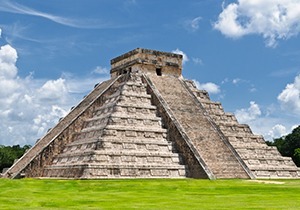
10 facts about the Maya!
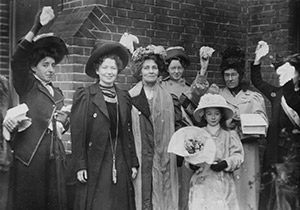
International Women’s Day
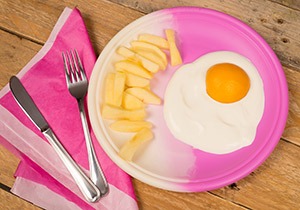
APRIL FOOLS’ PRANKS
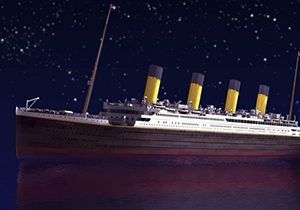

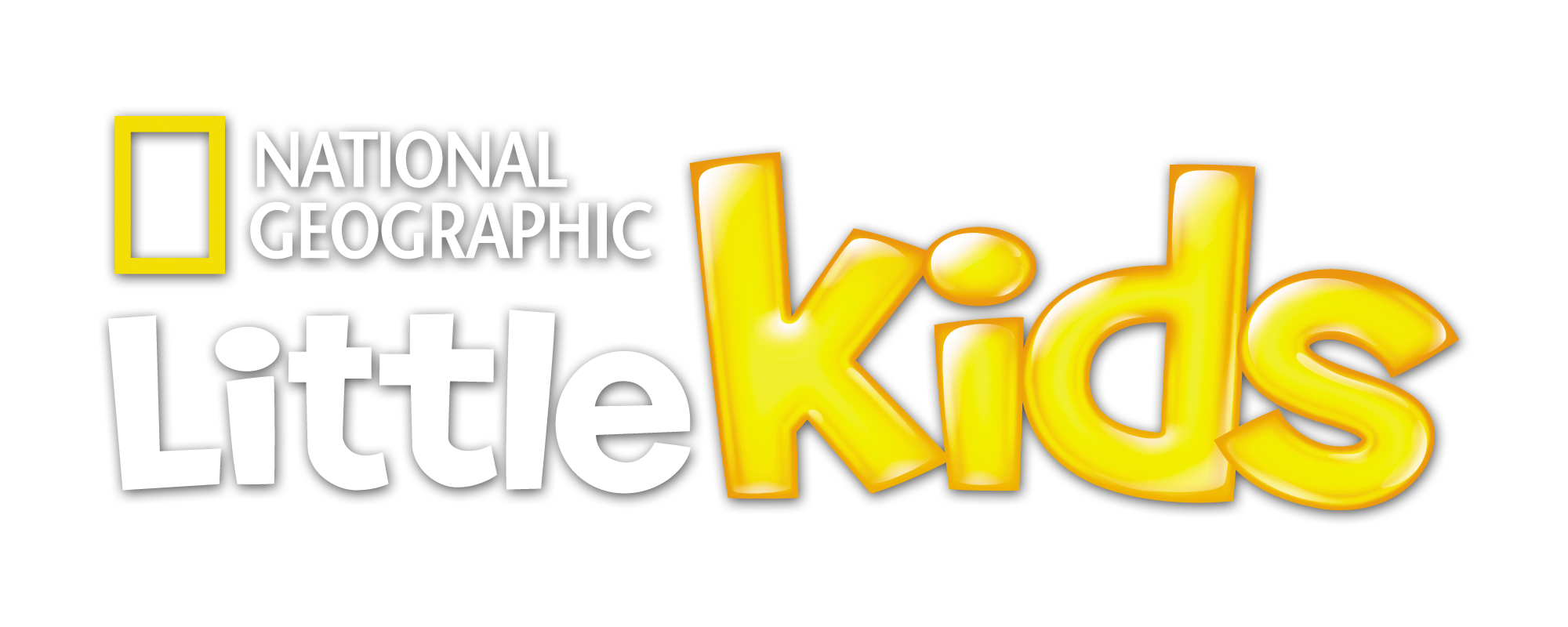




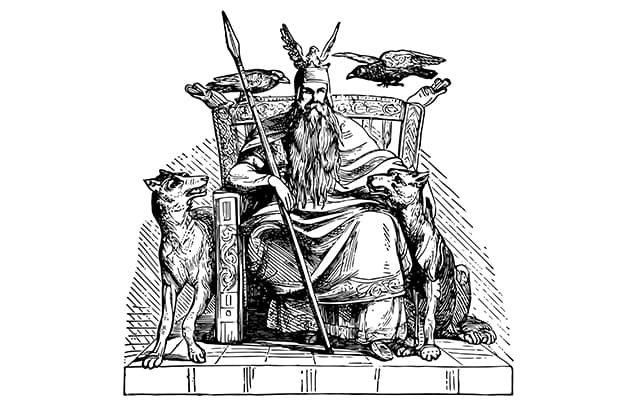
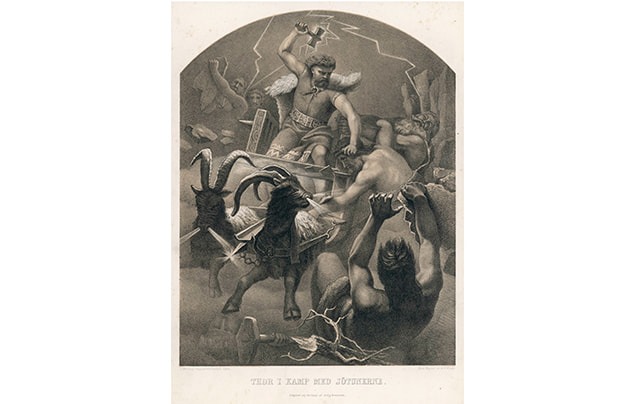
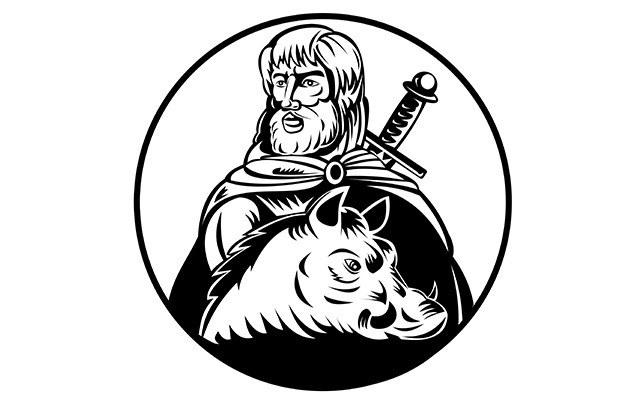
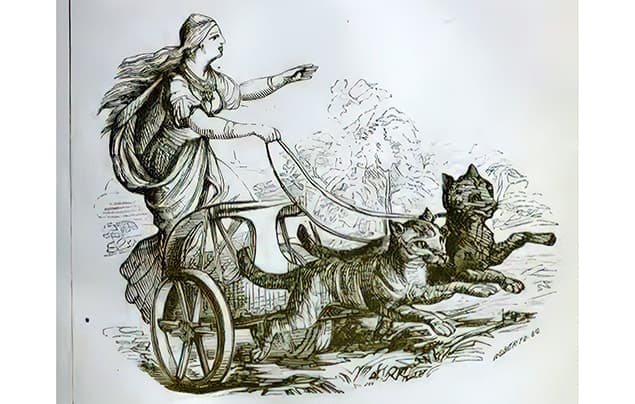
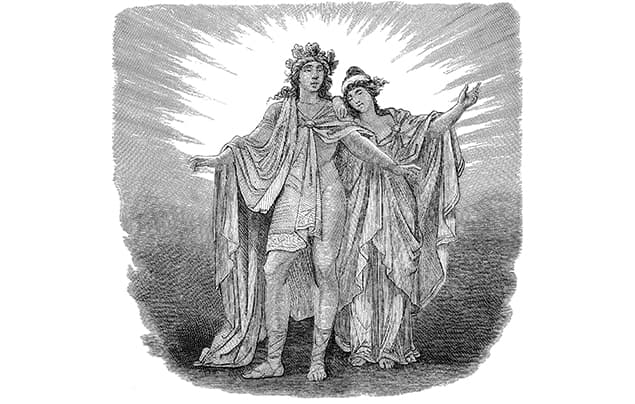
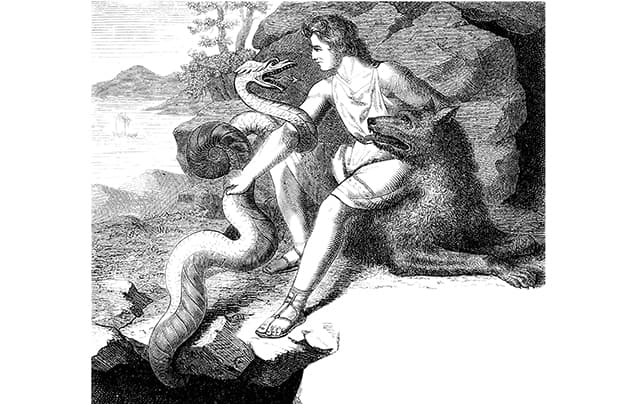
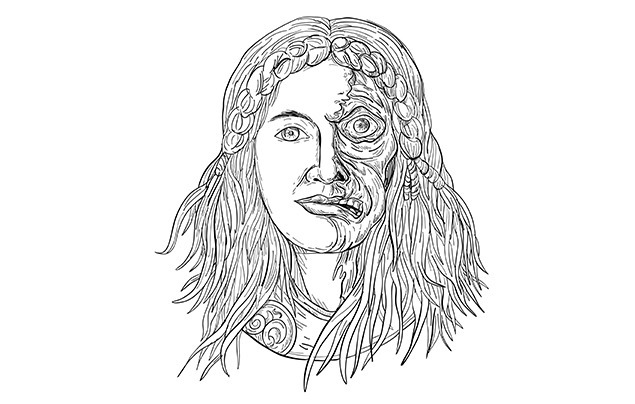




LEAVE A COMMENT
THANK YOU
Your comment will be checked and approved shortly.
WELL DONE,
YOUR COMMENT
HAS BEEN ADDED!
COMMENTS1
Lolipop
Balder is coollllll and yeah
op0
frey
Theo
Loki is the best
67
Freya is awsome!!!!!!
gabi
Loki forever!!!!
Hi
I love Frigg
cat
freya is my favourite because of cat
In school very helpfullll
67 kid
omg i love this it is wonderfull
bean
I like Hel :D
Thor is cool
Cool stuff
Hel is cool
randi
i love vikings my I love Odin and Thor and every other god and goddess.
67boss
My favourite is Hel
Adamski
Thor is my favourite Viking god
Odin the great
ODIN RULES!he’s powerful just like me!
Sigma
Hel=nightmares
Grace Lewis
OMG sif is so beautiful.
AnaayaJ14puppycute67
I love Hel and Loki because they are my fav gods
I love loki cause he is cool
6789
Hell is scary
Donovan
Loki is cool
Check 123
Hell is slay
Felt war
I love Odin he is so cool when he is the king of the gods and God of war
Arch cfc fan
Thor Thor
67 kid
I love skadi most
Harrison 6 7
Thx this really helped in my English work in school. We used this app for the lesson.
Ronaus
Lokiiii Is the best
fanta19
great website
Historical girl
This is so helpful.
Toby
Gooooooooooooooood
ezra
i love these i m also doing a project for school
Fanta20
FREYA IS THE COOLEST
Shark girl
Cool facts
Snow day home work
Zaynab
My favourite goddess is Freya
249621
Thanks, a lot I have to do a project about one of the Norse Gods so this is really helpful . Also I get your magazines. P.S. I love the eird But True section
sigma67
odin
Sigma67
Loki is that guy man he is my brother
I love67
I like Freya
UrNan
Loki is goated
67676767
Very helpfull
Very good very nice
mrsigma
we are in school
milo
I love loki
thomas
Thor is the best
676767676741414141
I like all of them but I think Hel looks kinda weird
jdfhkjghds
This is very good for me in school.
Inamul
intresting
6711
bro my comment does not work
bobthebuilder
Loki cool
Max
This is really helpful
I don't love steal a brainrot
Balder
Hello
sif is so baddie
Fenrir
I love loki
rosie
I like Sif and I am doing a project about her because of that for school.
poop
Loki is the best
poop
great things for my class
I love steal a branrot
fregga is the best
67676767
Thor is cool like spiderman
tim
RIP BALDER
Emma
Loki is pretty cool and this was helpful
no one loves steal a brainrot
Balder is the best
joey
Thor is the best
Banana
Frey
tim
Balder
67Prefer not to say67
This was interesting and helpful. :)
hi
thor is cool
besties
MY FAV IS FREYA
67676767
hel is my favourite
banana
my fav is FREYA!
Jeff 2
ODIN IS THE BEST!
God of thunder
bro Thor is my fav
Ash
Thursday came from Thor, Friday from Frigg, Tuesday from This, Wednesday from Woden(random facts)
Hi ❤️67
Wow
67
Hi
Bobby
Thor
Krishika
This is helpful for qize questions ❓
Akarsh singh
Cooooooooooooooooooooooooooooooooooooool
Hiiiiiii
Sigma squid
I love freya
67 67 67 67 67 67 67
Wooooooowwwwwwwww
I LOVE FREYA
676767
vikings rule!
Lynn
This was a great website to use for my school project!
rissy
wow
67
I LOVE NORSE GODS!!!!
Rawad
Great learned me a lot about history
Noah
Love Odin
smcm67
i love loki
Artem
Tyr
jeff
NORSE GODS!!!!!!!
jeff
ODIN IS THE BEST
Lottie
Nice
67
hello
Quinnette
Did you know that Thursday is named after Thor and Friday is named after Frey or Freya
Charlie
I love Freya she is very cool
skibidi
this helped a lot thank you so much
William
Cool Cool Cool
Frrrrrreeeeeeeyyyyyaaaaaaa
Felix
I wouldn't want to mess with Odin
Ranger Lothbrook
greaaaaaaaaaaaaaaaaaat
Thor is a move
anonamuz
loki thor
He he
It is goooooooooooooooooooooooooooooooooooooosooodood
Uihg
Thor is my favourite god and 2 favourite superhero
Fred
Wow
Hi
Jimmy
Amazing
jjj
slay
3.14
Odin & Freya
Coooooooooooool Ilove it!!!!!!!!!!
hi
Yes hel is crazy ugly!
Helped aloooooooooot
it helped me a lot with my school projeect
Taiwo
Balder so great
Hi
This is amazing 10/10
letttttttttt'ssssssssssss goooooooo ooooooodiiiiiinnnnnnn
Nice facts about freya
Lokaanshm
I like odin's two ravens
it helped me a LOT with my school project
???
Cool
Fred Smith
Thank you, this was really helpful!
Diggory
Realy good i like this website thor is my fav
green_pepper
thor ate a whole green pepper for breakfast
oli
BEST WEBSITE EVER!!!
your name
Loki is him thor is cool 2 tho
Max
This is really helpful
Max
This is really helpful
Sigma
Good boy
tung sahur
really helpful
freya and martha
the resources were very useful when we were doing a fact file for the vikings in our school
Max
this is amazing
abdimalik
loki and his brother thor
ronaldo
helped so much thank you
Krish
This is really interesting. I read about the Norse myths sometimes. Did you know that nearly all of the days of the week are named after Norse gods?
Superman
Thor is fabulous
Mitchman
I am part finish and that’s were viking
CB
I like Odin because I like the sound of his eight-legged horse!
JJ JR
I liked HEL she was cool!
Freya
My name is Freya!
I love steal a brainrot
I love this is the best for info
Potato
Fish
Fish is calling
Nice
JB
Loki
Potato
potatos are gods too you know
all of them are amazzzzzzzing and cool
I love Frey
jyay
I think Freya is the best God.
Moox
Lots of facts
Hi
Tia and viyan
Ooooooooooo it’s interesting
Arthur
I like thor
Ryan
I liked Loki
finn
good
alex
hi
Grace
Loki Loki Loki Loki
Dals
I think feyr was my favourite
I like Hel, nobody should be judged on their looks
William
I like Loki because he is mischievous like me.
Raymond
I though Thor was a super hero
Krish
My favourite Norse god is Frey.
William
Odin is the top dog!
Corin
Thor is cool
Ava
I like Freya. I wish I had a cloak made of falcon feathers, so I could fly
GRACE
I like Freya because i feel i relate to her a lot!
Felix
I like Loki because he does pranks.
tove
this was very interresting seeing that i am norse my name means love of thor
andy
Thor, Loki and Balder are all brothers Loki caused Balder's death and Thor was angry thats why Thor wanted to kill Loki
Hel is quite ugly
Rihaan
Wow!
Hector
I like Loki because he’s naughty.
tara
I would want to be freya if I could
Someone
This is very interesting!
William
I’m not going to argue with Thor.
Lily
This making it easy in Class
Cool
This is useful actually
chloe
this helped with work
Hannah
This was so helpful
Vj
Thor is cool
Grace
OMG
Evelyn
This was helpful for school
That was interesting and I never have seen some of those gods before
CUSTOMIZE YOUR AVATAR